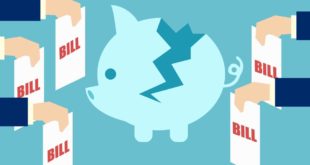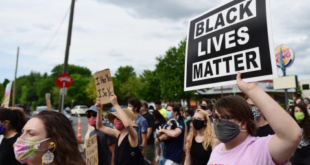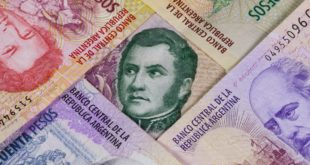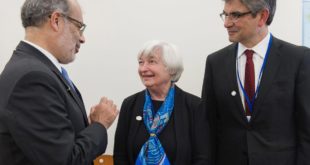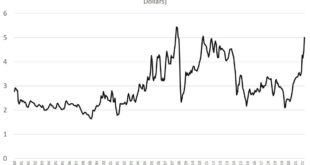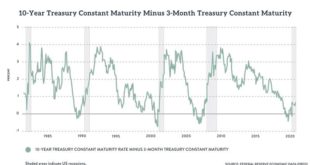With the acknowledged national debt now a politically and economically unpayable $30 trillion (in reality, its unfunded liabilities are far greater), Americans should start to become acclimated to the realities of the United States’ eventual, inevitable default. While it may seem unfathomable, and the results too catastrophic to imagine, in fact the likely damage to everyday Americans would be minimal in the short term and unquestionably a net plus in the long term....
Read More »Juneteenth and Secular Holidays as Tool of the Regime
Last year Congress officially declared Juneteenth a federal holiday. While Very Serious talking heads attempted desperately to convince those that would listen that Juneteenth was a long-celebrated American holiday, the reality is that it was largely unknown around the nation prior to congressional action. The episode is a useful illustration of how the state weaponizes secular holidays to promote a larger cultural agenda. Prior to nationwide riots in 2020,...
Read More »How Money Printing Destroyed Argentina and Can Destroy Others
The most dangerous words in monetary policy and economics are “this time is different.” Argentine politicians’ big mistake is to believe that inflation is multicausal and that everything is solved with increasing doses of interventionism. The consumer price index in Argentina experienced a year-on-year rise of 58 percent in April 2022, which means 2.9 percentage points above the variation registered last March. A real catastrophe. Inflation in Argentina is more than...
Read More »Powell’s “Soft Landing” Is Impossible
After more than a decade of chained stimulus packages and extremely low rates, with trillions of dollars of monetary stimulus fueling elevated asset valuations and incentivizing an enormous leveraged bet on risk, the idea of a controlled explosion or a “soft landing” is impossible. In an interview with Marketplace, the Federal Reserve chairman admitted that “a soft landing is really just getting back to 2 percent inflation while keeping the labor market strong. And...
Read More »Even after Admitting She Underestimated Inflation, Janet Yellen Still Doesn’t Understand What It Is
According to the June 1, 2022, Financial Times, Janet Yellen, the US Treasury secretary conceded she was wrong last year about the path inflation would take. Yellen told CNN: There have been unanticipated and large shocks to the economy that have boosted energy and food prices and supply bottlenecks that have affected our economy badly that I didn’t fully understand, but we recognize that now. To be able to say something meaningful about inflation, it is necessary to...
Read More »On the Digital Future of Markets and Money
Thank you very much for the invitation. I am delighted to have the opportunity to share some thoughts with you on a topic I am very much interested in and that I believe is of the utmost importance to people around the globe—and that is “the digital future of markets and money.” So let us dive right in! When I was your age, dear students, there were no cell phones, no internet, no Google, no Amazon, no Facebook, no Twitter, no TikTok, no YouTube. People did not have...
Read More »No, It’s Not “Greed” or “Price Gouging” that’s Driving up Gas Prices
Both consumer prices and producer rose near to multi-decade highs last month. Price inflation rose to 8.6 percent while wholesale producer prices rose by more than 10 percent. In both cases, a significant factor behind rising prices—but certainly not the only factor—was high energy prices. This has been reflected in prices related to transportation and shipping. Prices for air travel, for example, have seen some of the biggest price increases in recent months while...
Read More »The Inverted Yield Curve and Recession
The “yield curve” refers to a graph showing the relationship between the maturity length of bonds—such as one month, three months, one year, five years, twenty years, etc.—plotted on the x axis, and the yield (or interest rate) plotted on the y axis.1 In the postwar era, a “normal” yield curve has been upward sloping, meaning that investors typically receive a higher rate of return if they are willing to put their funds into longer-dated bonds. A so-called inverted...
Read More »The Great Reset: Turning Back the Clock on Civilization
The covid-19 pandemic featured an unprecedented fusion of the interests of large and powerful corporations with the power of the state. Democratically elected politicians in many countries failed to represent the interests of their own citizens and uphold their own constitutions and charters of rights. Specifically, they supported lockdown measures, vaccine mandates, the suppression of a variety of early treatment options, the censorship of dissenting views,...
Read More »Even When There Is Inflation, the Fed STILL Fights Falling Prices
Under any remotely sound money regime the aftermath of war and/or pandemic is highly likely to feature a sharp decline in the prices of goods and services on average. Even under unsound money regimes there are powerful forces operating towards lower prices once the war/pandemic recedes. Strong injections of monetary inflation, however, can overpower them. The Fed and all the foreign central banks which follow its lead and/or doctrines are apparently of the intention...
Read More » Swiss Economicblogs.org
Swiss Economicblogs.org

